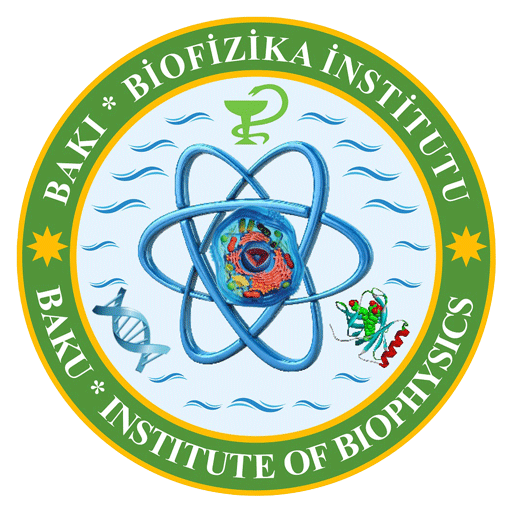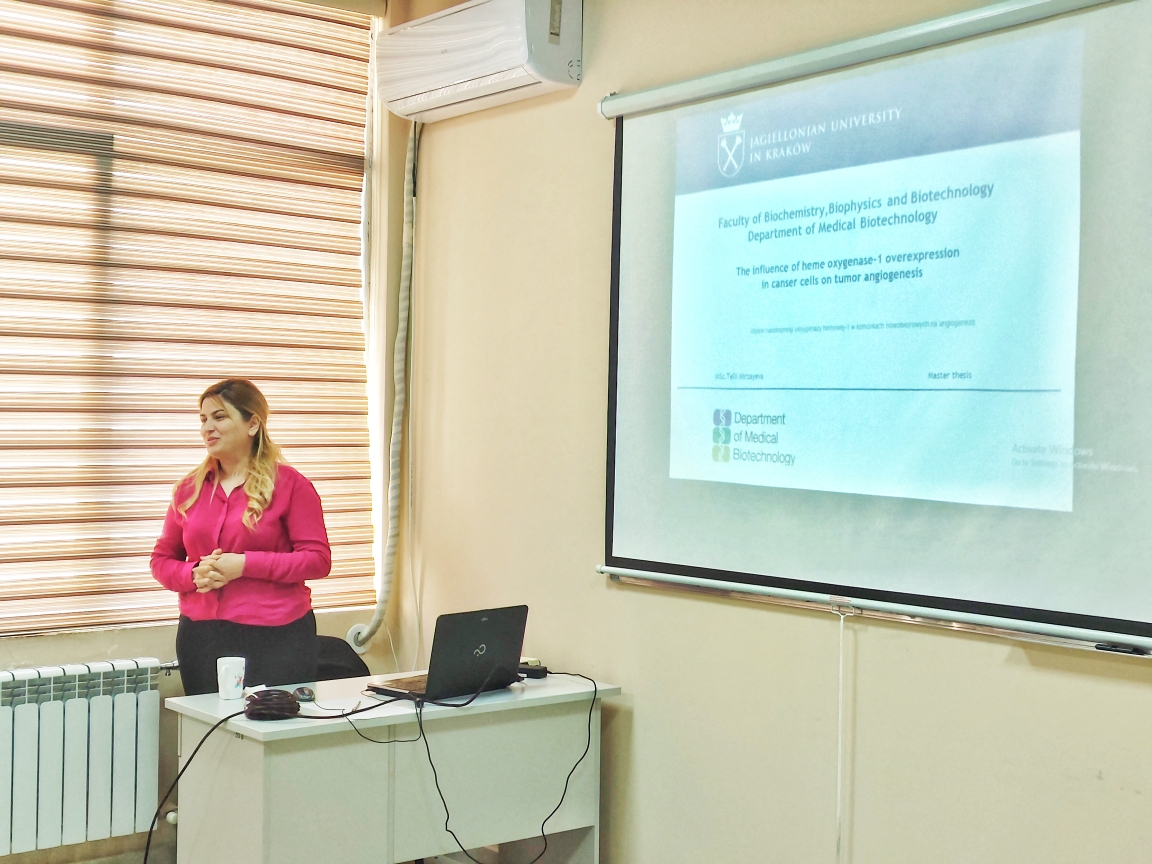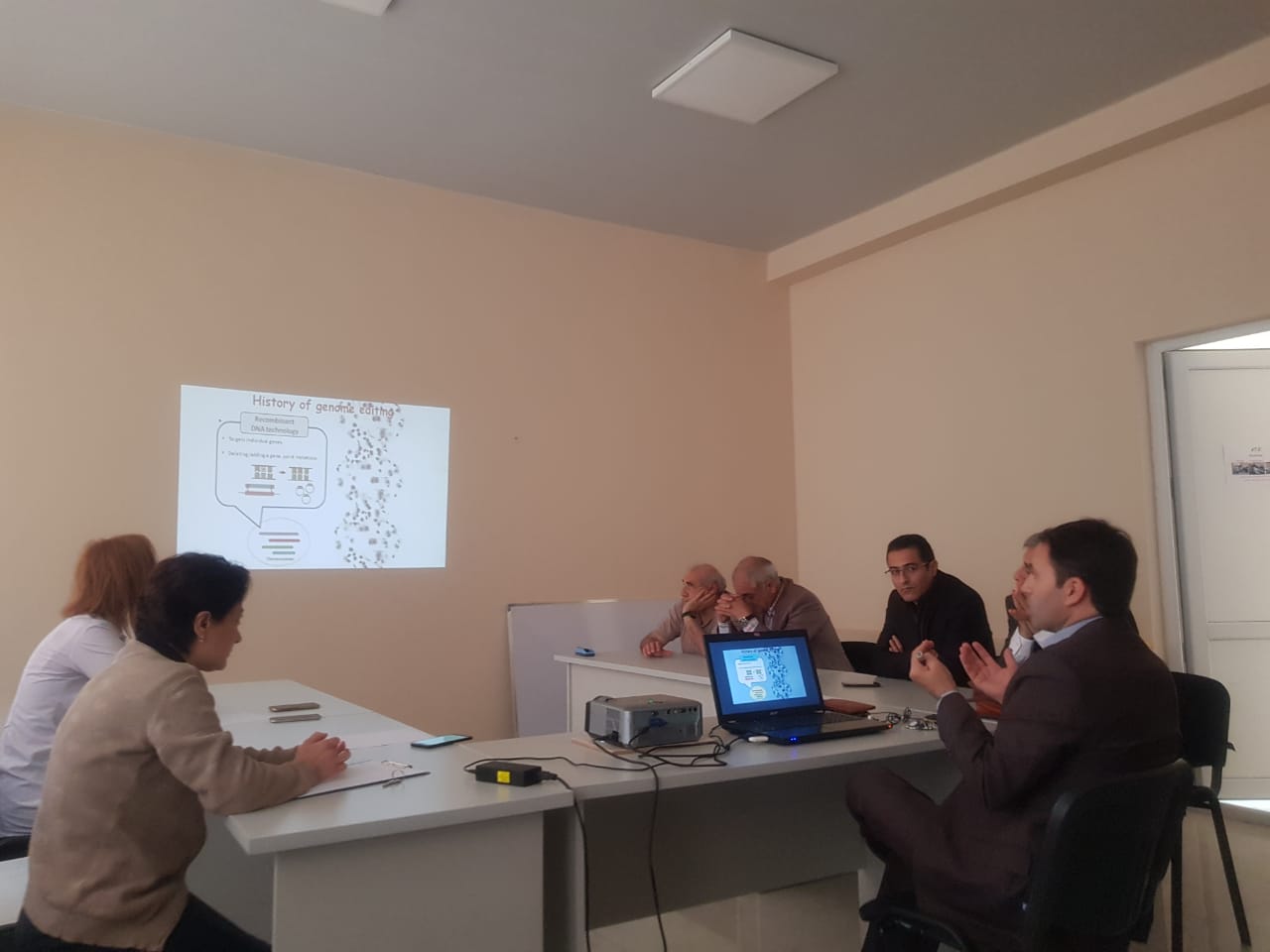A scientific seminar on "The influence of heme oxygenase-1 overexpression in cancer cells on tumor angiogenesis" was held at the Institute of Biophysics
A scientific seminar on "The influence of heme oxygenase-1 overexpression in cancer cells on tumor angiogenesis" was held at AR MSE Institute of Biophysics.
Oktay Gasimov, Director General of the Institute of Biophysics, corresponding member of ANAS, who opened the seminar with his opening speech, greeted Telli Mirzayeva and the participants of the seminar, spoke about the importance of holding such educational events, emphasized that scientific seminars are useful for our scientists and young specialists, and informed about the relevance of the topic.
Then Telli Mirzayeva introduced herself and noted that she graduated from Jagiellonian University in Poland with a master's degree in "Molecular Biotechnologies" (in English), and also worked as a researcher at Witten Herdecke University in Germany. Later, the young researcher gave a speech on " The influence of heme oxygenase-1 overexpression in cancer cells on tumor angiogenesis". Therapeutic targeting of cancer markers, Heme Oxygenase-1 (HO-1), Vasculogenesis, Angiogenesis and its regulation, Angiogenic signaling pathways, Scheme of experiment with HO-1 overexpressing tumor cells injected into C3H mouse model, SCC VII cells into C3H mice Histological analysis of tumor samples 1 month after injection, establishment of genetically modified SCC VII cell lines, measurement of vessel area using Image-J provided extensive information in his presentation. He noted that many publications show that therapeutic strategies against cancer should target not only cancer cells, but also the tumor microenvironment - cells of non-cancerous origin, as well as cell-free stromal components in the tumor. Several studies have shown that heme oxygenase-1 is often overexpressed in cancer cells, which may be accompanied by increased angiogenesis and increased tumor growth. But it turns out that HO-1 has a paradoxical dual effect. On the one hand, increased HO-1 expression reduces the risk of DNA damage and initiation of carcinogenesis in normal cells. On the other hand, at a later stage of oncogenesis, overexpression of HO-1 may promote cancer cell proliferation and invasiveness.
Telli Mirzayeva emphasized that the aim of the study was to investigate the effect of HO-1 on angiogenesis in squamous (flat) cell carcinoma of mice.
Discussions were held around the report and questions were answered.
At the end of the seminar, professor Oktay Gasimov thanked Telli Mirzayeva on behalf of the participants and the management of the institute for the interesting and informative report, and wished success in her future research.










